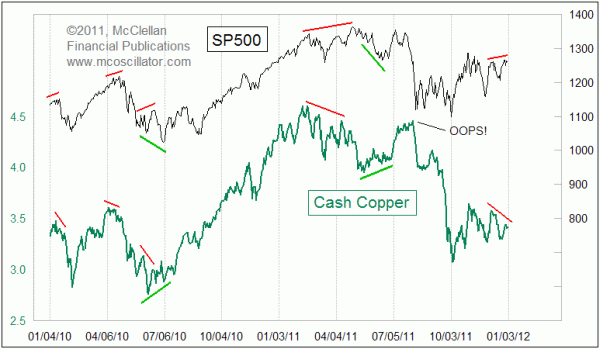Today's Market
by Dr Invest

Call me stupid, but why is Bernake going to keep putting tax money into bonds? After almost a month of analysts lauding the miraculous recovery of the market, declaring stocks ridiculously cheap at today's prices, and inciting all the scaredy-cats to spend their fortunes on stocks, it was reported:
The Federal Reserve has moved closer to embarking on a new round of its controversial money-pumping after the central bank and its chairman Ben Bernanke highlighted a grim outlook for the U.S. economy.
Bernanke on Wednesday opened the door a bit wider for the Fed to return to buying securities in the months ahead to buttress a weak recovery and keep inflation from slipping too far below its newly adopted 2-percent target.
The Fed's announcement that it was unlikely to raise interest rates until at least late 2014, more than a year beyond its previous guidance, immediately pushed down Treasury bond yields and Bernanke's comments to the media raised expectations of a further round of so-called quantitative easing, or QE3.
With core inflation now at 1.7 percent and Fed officials forecasting unemployment to stay above 8 percent this year, many analysts took Bernanke's comments to mean QE3 is all but inevitable.
Please, help me understand "GRIM OUTLOOK". Is this akin "a great time to buy stocks"? What would you say if your financial advisor called you into his office, saying: "Ted, there is a GRIM OUTLOOK for your investments in 2012, but let's leave your money right where it is at."?
Listen, I don't want anyone to use the word, GRIM in respect to my money, my health, or anything else. Just the threat of manipulating the market yet again, reveals a hidden secret: "Economic growth is not as strong as the media has touted.
If you are in the market right now and your investments are growing, stay in the market. If you are out of the market right now, don't get in. We could keep on a roll another month, but with only a little bad news from Europe, the market could slip into some serious losses.
IRRATIONAL MARKETS
For educational purposes, the market doesn't care what the analysts and economists say. The only determinate for the price of the market is the market itself. The market is flippant and unpredictable. Winning means "following where the market takes you". In a strong market, stocks consistenly move upward in price, more than they move downward. In in a weak market, stocks consistently move downward in price, more than they move upward. If the market is GRIM, you don't want to be in that market.
WHAT CAN YOU STOMACH?
It is better to be out of the market wishing you were in, rather than in the market wishing you were out. This wisdom is only appreciated if you have put yourself into a position where you are losing money because you bought stocks at the wrong time and your stocks are declining. Why take a risk now, when at the end of 2012, I could buy stocks at a cheaper price and still gain 12 to 15%? Given the weakness in this economy, I could sleep better knowing that my money was not at risk.
(note: the above article is for entertainment purposes only and not to be used in anyway as investment advice.)
by Dr Invest
Call me stupid, but why is Bernake going to keep putting tax money into bonds? After almost a month of analysts lauding the miraculous recovery of the market, declaring stocks ridiculously cheap at today's prices, and inciting all the scaredy-cats to spend their fortunes on stocks, it was reported:
The Federal Reserve has moved closer to embarking on a new round of its controversial money-pumping after the central bank and its chairman Ben Bernanke highlighted a grim outlook for the U.S. economy.
Bernanke on Wednesday opened the door a bit wider for the Fed to return to buying securities in the months ahead to buttress a weak recovery and keep inflation from slipping too far below its newly adopted 2-percent target.
The Fed's announcement that it was unlikely to raise interest rates until at least late 2014, more than a year beyond its previous guidance, immediately pushed down Treasury bond yields and Bernanke's comments to the media raised expectations of a further round of so-called quantitative easing, or QE3.
With core inflation now at 1.7 percent and Fed officials forecasting unemployment to stay above 8 percent this year, many analysts took Bernanke's comments to mean QE3 is all but inevitable.
Please, help me understand "GRIM OUTLOOK". Is this akin "a great time to buy stocks"? What would you say if your financial advisor called you into his office, saying: "Ted, there is a GRIM OUTLOOK for your investments in 2012, but let's leave your money right where it is at."?
Listen, I don't want anyone to use the word, GRIM in respect to my money, my health, or anything else. Just the threat of manipulating the market yet again, reveals a hidden secret: "Economic growth is not as strong as the media has touted.
If you are in the market right now and your investments are growing, stay in the market. If you are out of the market right now, don't get in. We could keep on a roll another month, but with only a little bad news from Europe, the market could slip into some serious losses.
IRRATIONAL MARKETS
For educational purposes, the market doesn't care what the analysts and economists say. The only determinate for the price of the market is the market itself. The market is flippant and unpredictable. Winning means "following where the market takes you". In a strong market, stocks consistenly move upward in price, more than they move downward. In in a weak market, stocks consistently move downward in price, more than they move upward. If the market is GRIM, you don't want to be in that market.
WHAT CAN YOU STOMACH?
It is better to be out of the market wishing you were in, rather than in the market wishing you were out. This wisdom is only appreciated if you have put yourself into a position where you are losing money because you bought stocks at the wrong time and your stocks are declining. Why take a risk now, when at the end of 2012, I could buy stocks at a cheaper price and still gain 12 to 15%? Given the weakness in this economy, I could sleep better knowing that my money was not at risk.
(note: the above article is for entertainment purposes only and not to be used in anyway as investment advice.)




